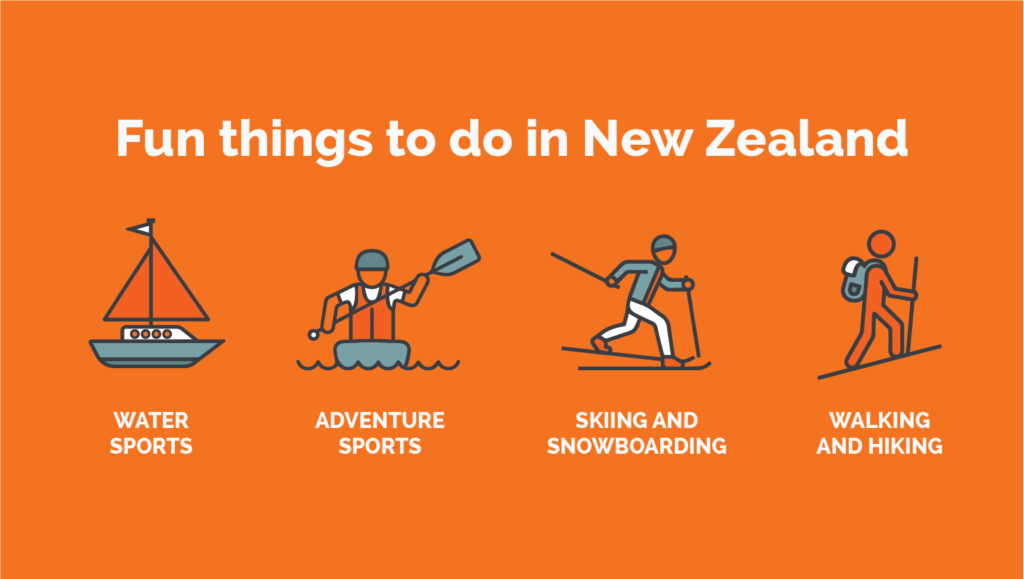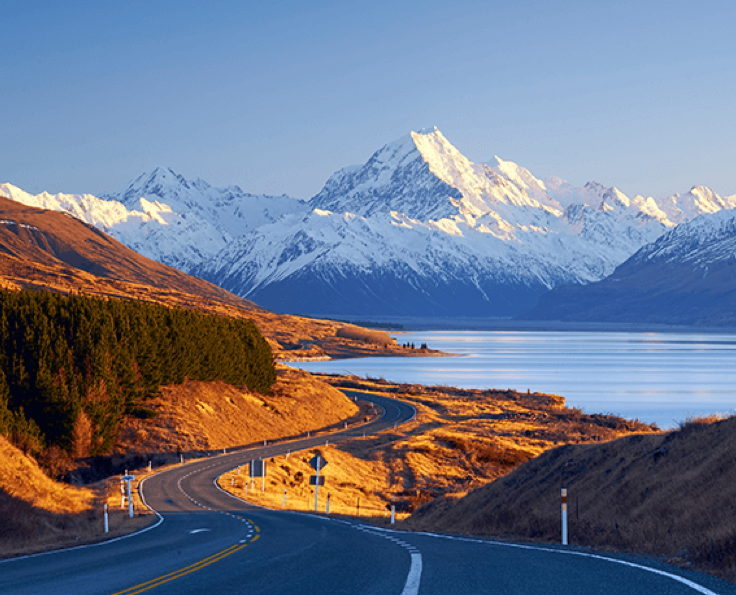Travel Insurance For New Zealand
Travel Insurance For New Zealand
*iSelect does not compare all travel insurers or policies in the market and not all policies or special offers are available at all times or in all areas. We currently only provide a comparison service online. Not all policies available from our providers are compared by iSelect and due to commercial arrangements and customer circumstances, not all policies compared by iSelect are available to all customers. Learn more.
Easily compare Travel Insurance
Save time and effort by comparing a range of travel insurance policies with iSelect*
Fun things to do in New Zealand – and the benefits of having travel insurance
Potential problems in New Zealand
Does Australia have a reciprocal healthcare agreement with NZ?
What about New Zealand citizens who live in Australia?
Your New Zealand travel policy could cover
What may not be covered?
There’s many possible reasons for this. First off, it’s only a couple of hours away by flight, and it offers a whole host of fun things to do when you land, such as snowboarding and bungee jumping.
Plus, the landscape is absolutely breath taking. In this article you’ll learn more about the benefits of having travel insurance when travelling to New Zealand, and some factors worth considering.
Fun things to do in New Zealand – and the benefits of having travel insurance
Visitors to New Zealand are spoilt for choice2https://www.newzealand.com/au/things-to-do/. It’s a tourism paradise, with stunning scenery, incredible food and wine, and adventure activities galore. Here’s just a few ideas to get you started.
Water sports:
Kayaking, sailing and diving are all fantastic ways to enjoy New Zealand’s incredible coastline, as well as its lakes and rivers. But always be sure to use appropriate safety equipment like life jackets, and check the insurance policies of any tour operators or equipment providers. A comprehensive travel policy can give you peace of mind should any accidents happen.
Adventure sports:
New Zealand is renowned for its adventure options including bungy jumping, white water rafting, sky diving, and zip lining. But never sacrifice your well-being for your adrenaline rush. Make sure you use reputable operators who prioritise safety. Should an accident happen, travel insurance can help cover medical expenses.
Skiing and snowboarding:
Of course, in the winter months, New Zealand is a popular choice for Australian ski bunnies. With reliable snow conditions and affordable lift passes, it offers a great value alternative to Australian snow resorts. But skiing and snowboarding are inherently dangerous activities with high injury rates. Give yourself peace of mind with a policy that covers these activities.
Walking and hiking:
New Zealand is a walkers’ paradise. Hiking, or as New Zealanders call it, tramping, is a great way to slow down and experience a landscape up close and personal. But there’s always the risk of a turned ankle on the Tongariro Crossing, or a broken limb when walking the Milford Track – so cover your bases with travel insurance that’ll take care of any unexpected costs due to injury. If you’re trekking in remote areas, carry a personal locator beacon and share your plans with a visitor information centre.

Potential problems in New Zealand
Although New Zealand is a safe country3https://smartraveller.gov.au/Countries/pacific/Pages/new_zealand.aspx where normal safety precautions are adequate, it’s also prone to earthquakes, which can disrupt your travel plans. It’s also very popular with winter sports fans, so there’s the risk of accidents related to that. And even though you might be visiting family, there could be unexpected travel delays which cause additional accommodation costs for example. Travel insurance could provide some financial cover and peace of mind in these circumstances.
Does Australia have a reciprocal healthcare agreement with NZ?
Australia’s reciprocal healthcare agreement with New Zealand means you’ll have access to government healthcare if you get sick or injured while over there4https://www.humanservices.gov.au/individuals/services/medicare/reciprocal-health-care-agreements. However, this agreement doesn’t extend to additional flights, accommodation, or medical repatriation. Also, it may not cover some pre-existing conditions, which is where your travel insurance could fill any gaps in your cover.
What about New Zealand citizens who live in Australia?
Lots of travellers from Australia to New Zealand are actually New Zealand citizens who are permanent residents of Australia. But there are some very good reasons why you should still consider travel insurance for your dash across the ditch for a family wedding or birthday.
While your medical costs might be covered in the event of an accident or illness, how about getting home to Australia where you live and work, and where you may have kids who go to school and so forth?
Your New Zealand travel policy could cover:
Medical costs
If you have an accident, whether its skiing, zip lining, or just crossing the road, then your medical care could be covered by the reciprocal agreement, but not the extra accommodation, flights, or repatriation. Travel insurance could give you peace of mind respect.
Cancellation fees and lost deposits
Getting travel insurance means that cancellations due to natural disasters, accidents, hijackings, illness and injuries are covered. New Zealand gets more than 20,000 earthquakes a year5https://www.geonet.org.nz/earthquake/statistics, with 100-150 being noticeable, so it’s reasonable to factor this in.
Lost luggage
If your luggage is lost, stolen or damaged, then you’ll be covered. If you choose comprehensive insurance then you may also be covered for lost cash and travel documents.
Travel delays
If your flight’s delayed, or you have to cancel your holiday for a valid reason, then you may be covered. It’s important to check the fine print on your policy for clarity on this one.
Your personal liability
If you injure someone, or damage their property while in New Zealand, then some or all of your liability costs may be covered, depending on the level of cover in your chosen policy.
Extras
Depending on the context of your travel and your individual needs, you may also want to consider available extras with your travel policy. These can include: rental vehicle cover, permanent disability cover, income loss cover, and extra cover for pet boarding fees if you’re delayed, among other extra features.

What won’t be covered?
Unattended luggage won’t be covered, so make sure you have a tight grip on your possessions.
Any injuries or accidents related to alcohol or drugs won’t be covered, so no Dutch courage on those slopes, or driving after a day of wine tasting!
If you ignore travel advice from the Australian government then you won’t be covered for any adverse events that occur. Pay particular attention to warnings about natural disasters before you travel.
Riskier activities like bungee-jumping, rafting, climbing, abseiling, and snowboarding can be lots of fun, but you may need to buy extra cover to make sure you’re covered in the event of a mishap.
It’s also a good idea to check if your policy will cover you if using a motorcycle, quad bike or similar vehicles. Check your policy and any restrictions.
Some pre-existing conditions are covered, but some aren’t. Some insurers will cover the pre-existing conditions for an additional fee, it’s important to find cover that’s suitable for you.
Ready to compare travel insurance policies before heading to New Zealand?
You can compare travel insurance policies the easy way with iSelect.

.svg)




